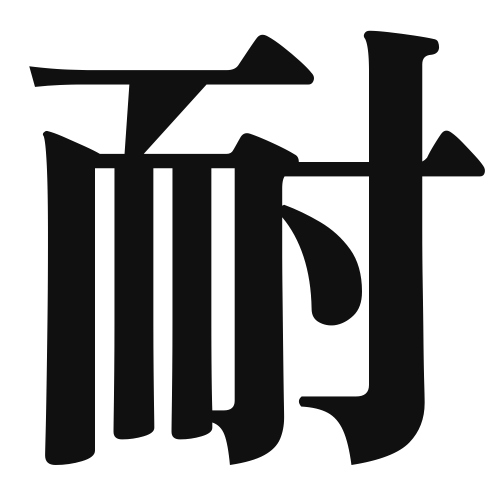1. Overview of Meaning
The kanji “耐” (nai) means “to endure” or “to withstand.” It conveys the idea of perseverance and the ability to tolerate difficult situations or conditions.
2. Formation and Radical
Formation of the Kanji: The kanji “耐” is a compound character (会意文字) that combines elements to convey its meaning. It consists of the radical “耐” which suggests the concept of enduring or withstanding.
Radical: The radical for “耐” is “耐” itself, which relates to endurance and resistance.
3. Examples of Usage
Common Words and Phrases: Some frequently used words that include “耐” are “耐える” (taeru – to endure) and “耐久性” (taikyūsei – durability).
Example Sentences in Daily Conversation:
- この仕事はとても大変ですが、耐えなければなりません。 (This job is very tough, but I have to endure it.)
- 彼は耐久性のある材料を使って、家を建てました。 (He built the house using durable materials.)
4. Synonyms and Antonyms
Similar Kanji: A similar kanji is “我慢” (gaman), which also means “to endure,” but it often implies a sense of patience or self-control in the face of hardship.
Opposite Kanji: The opposite of “耐” is “放棄” (hōki), which means “to give up” or “to abandon,” indicating a lack of endurance or perseverance.
5. Cultural and Historical Background
Relation to Japanese Culture: The concept of endurance is highly valued in Japanese culture, often associated with the idea of “gaman,” which emphasizes patience and perseverance in difficult times.
Proverbs and Idioms: A common proverb is “耐え忍ぶ者は、必ず報われる” (Taeshinobu mono wa, kanarazu mukuwareru), which translates to “Those who endure will surely be rewarded,” highlighting the importance of resilience.
